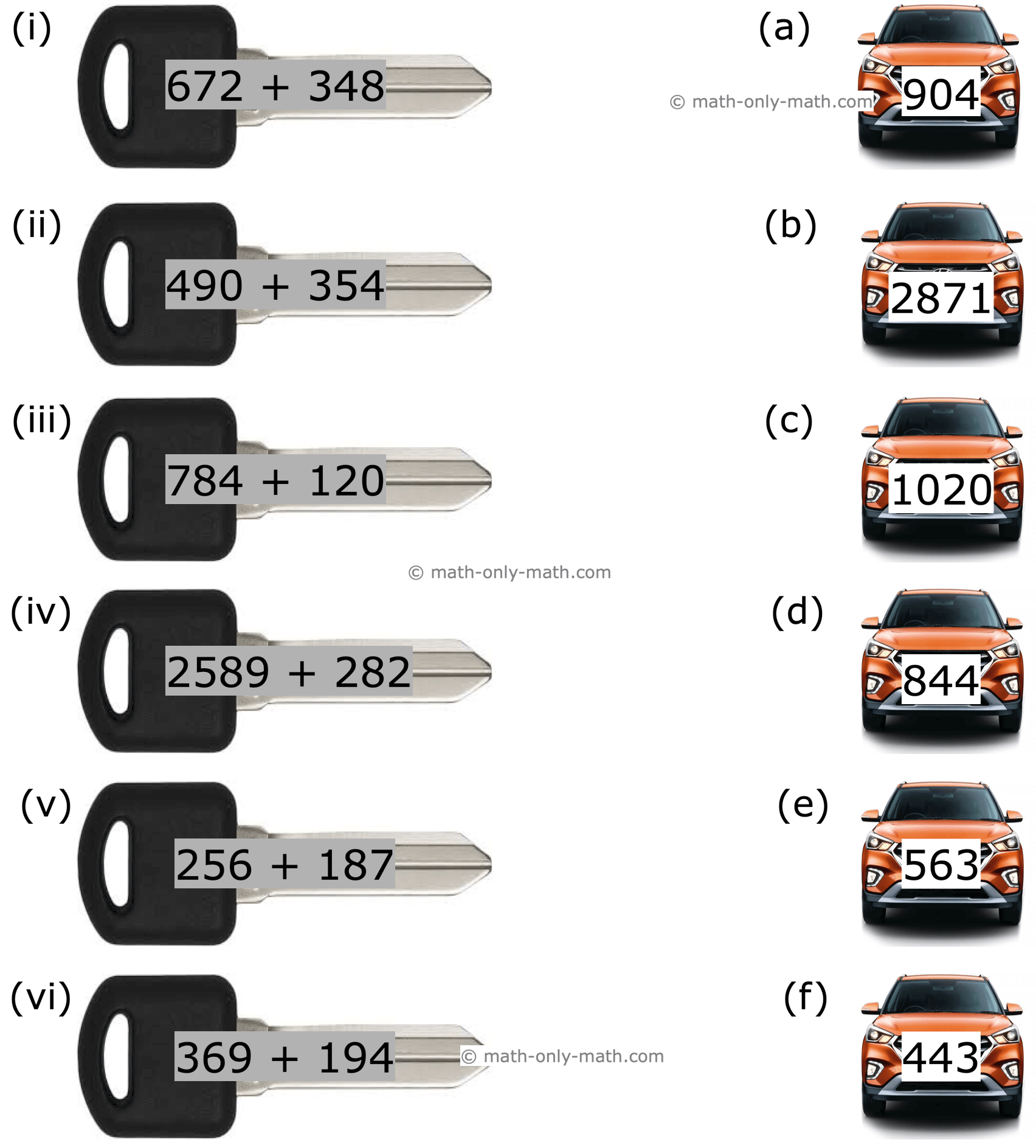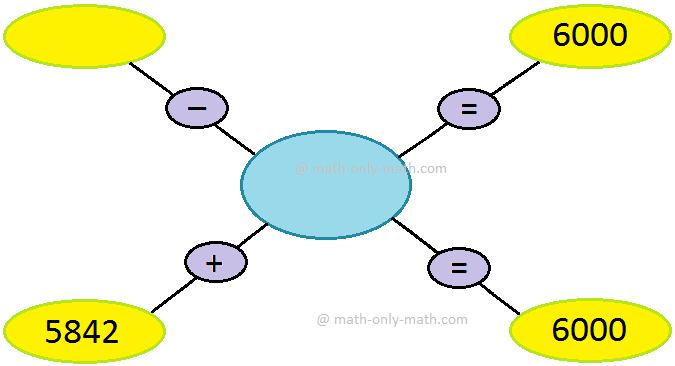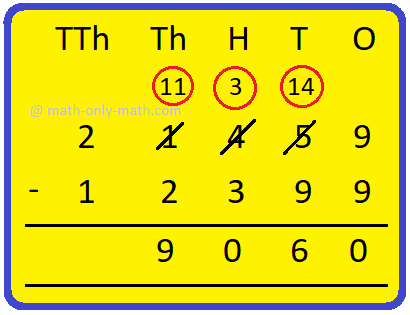Sum of the First n Terms of an Arithmetic Progression
We will learn how to find the sum of first n terms of an Arithmetic Progression.
Prove that the sum S\(_{n}\) of n terms of an Arithmetic Progress (A.P.) whose first term ‘a’ and common difference ‘d’ is
S = \(\frac{n}{2}\)[2a + (n - 1)d]
Or, S = \(\frac{n}{2}\)[a + l], where l = last term = a + (n - 1)d
Proof:
Suppose, a\(_{1}\), a\(_{2}\), a\(_{3}\), ……….. be a\(_{n}\) Arithmetic Progression whose first term is a and common difference is d.
Then,
a\(_{1}\) = a
a\(_{2}\) = a + d
a\(_{3}\) = a + 2d
a\(_{4}\) = a + 3d
………..
………..
a\(_{n}\) = a + (n - 1)d
Now,
S = a\(_{1}\) + a\(_{2}\) + a\(_{3}\) + ………….. + a\(_{n -1}\) + a\(_{n}\)
S = a + (a + d) + (a + 2d) + (a + 3d) + ……….. + {a + (n - 2)d} + {a + (n - 1)d} ……………….. (i)
By writing the terms of S in the reverse order, we get,
S = {a + (n - 1)d} + {a + (n - 2)d} + {a + (n - 3)d} + ……….. + (a + 3d) + (a + 2d) + (a + d) + a
Adding the corresponding terms of (i) and (ii), we get
2S = {2a + (n - 1)d} + {2a + (n - 1)d} + {2a + (n - 1)d} + ………. + {a + (n - 2)d}
2S = n[2a + (n -1)d
⇒ S = \(\frac{n}{2}\)[2a + (n - 1)d]
Now, l = last term = nth term = a + (n - 1)d
Therefore, S = \(\frac{n}{2}\)[2a + (n - 1)d] = \(\frac{n}{2}\)[a {a + (n - 1)d}] = \(\frac{n}{2}\)[a + l].
We can also find find the sum of first n terms of a\(_{n}\) Arithmetic Progression according to the process below.
Suppose, S denote the sum of the first n terms of the Arithmetic Progression {a, a + d, a + 2d, a + 3d, a + 4d, a + 5d ……………...}.
Now nth term of the given Arithmetic Progression is a + (n - 1)d
Let the nth term of the given Arithmetic Progression = l
Therefore, a + (n - 1)d = l
Hence, the term preceding the last term is l – d.
The term preceding the term (l - d) is l - 2d and so on.
Therefore, S = a + (a + d) + (a + 2d) + (a + 3d) + …………………….. to n tems
Or, S = a + (a + d) + (a + 2d) + (a + 3d) + …………………….. + (l - 2d) + (l - d) + l ……………… (i)
Writing the above series in reverse order, we get
S = l + (l - d) + (l - 2d) + ……………. + (a + 2d) + (a + d) + a………………(ii)
Adding the corresponding terms of (i) and (ii), we get
2S = (a + l) + (a + l) + (a + l) + ……………………. to n terms
⇒ 2S = n(a + l)
⇒ S = \(\frac{n}{2}\)(a + l)
⇒ S = \(\frac{Number of terms}{2}\) × (First term + Last term) …………(iii)
⇒ S = \(\frac{n}{2}\)[a + a + (n - 1)d], Since last term l = a + (n - 1)d
⇒ S = \(\frac{n}{2}\)[2a + (n - 1)d]
Solved examples to find the sum of first n terms of an Arithmetic Progression:
1. Find the sum of the following Arithmetic series:
1 + 8 + 15 + 22 + 29 + 36 + ………………… to 17 terms
Solution:
First term of the given arithmetic series = 1
Second term of the given arithmetic series = 8
Third term of the given arithmetic series = 15
Fourth term of the given arithmetic series = 22
Fifth term of the given arithmetic series = 29
Now, Second term - First term = 8 - 1 = 7
Third term - Second term = 15 - 8 = 7
Fourth term - Third term = 22 - 15 = 7
Therefore, common difference of the given arithmetic series is 7.
The number of terms of the given A. P. series (n) = 17
We know that the sum of first n terms of the Arithmetic Progress, whose first term = a and common difference = d is
S = \(\frac{n}{2}\)[2a + (n - 1)d]
Therefore, the required sum of first 20 terms of the series = \(\frac{17}{2}\)[2 ∙ 1 + (17 - 1) ∙ 7]
= \(\frac{17}{2}\)[2 + 16 ∙ 7]
= \(\frac{17}{2}\)[2 + 112]
= \(\frac{17}{2}\) × 114
= 17 × 57
= 969
2. Find the sum of the series: 7 + 15 + 23 + 31 + 39 + 47 + ……….. + 255
Solution:
First term of the given arithmetic series = 7
Second term of the given arithmetic series = 15
Third term of the given arithmetic series = 23
Fourth term of the given arithmetic series = 31
Fifth term of the given arithmetic series = 39
Now, Second term - First term = 15 - 7 = 8
Third term - Second term = 23 - 15 = 8
Fourth term - Third term = 31 - 23 = 8
Therefore, the given sequence is a\(_{n}\) arithmetic series with the common difference 8.
Let there be n terms in the given arithmetic series. Then
a\(_{n}\) = 255
⇒ a + (n - 1)d = 255
⇒ 7 + (n - 1) × 8 = 255
⇒ 7 + 8n - 8 = 255
⇒ 8n - 1 = 255
⇒ 8n = 256
⇒ n = 32
Therefore, the required sum of the series = \(\frac{32}{2}\)[2 ∙ 7 + (32 - 1) ∙ 8]
= 16 [14 + 31 ∙ 8]
= 16 [14 + 248]
= 16 × 262
= 4192
Note:
1. We know the formula to find the sum of first n terms of a\(_{n}\) Arithmetic Progression is S = \(\frac{n}{2}\)[2a + (n - 1)d]. In the formula there are four quantities. They are S, a, n and d. If any three quantities are known, the fourth quantity can be determined.
Suppose when two quantities are given then, the remaining two quantities are provided by some other relation.
2. When the sum S\(_{n}\) of n terms of an Arithmetic Progression is given, then the nth term a_n of the Arithmetic Progression cann be determined by the formula a\(_{n}\) = S\(_{n}\) - S\(_{n -1}\).
● Arithmetic Progression
- Definition of Arithmetic Progression
- General Form of an Arithmetic Progress
- Arithmetic Mean
- Sum of the First n Terms of an Arithmetic Progression
- Sum of the Cubes of First n Natural Numbers
- Sum of First n Natural Numbers
- Sum of the Squares of First n Natural Numbers
- Properties of Arithmetic Progression
- Selection of Terms in an Arithmetic Progression
- Arithmetic Progression Formulae
- Problems on Arithmetic Progression
- Problems on Sum of 'n' Terms of Arithmetic Progression
From Sum of the First n Terms of an Arithmetic Progression to HOME PAGE
Didn't find what you were looking for? Or want to know more information about Math Only Math. Use this Google Search to find what you need.
Recent Articles
-
Multiplication Table | Learn Tables from 0 – 25 | Multiplication Table
Jan 14, 25 11:53 PM
In math multiplication table we will learn the tables from 0 – 25. These multiplication tables help the students to learn the essential multiplication facts. Multiplication tables are very important f… -
3rd Grade Math Worksheets |3rd Grade Math Sheets|3rd Grade Math Lesson
Jan 14, 25 11:02 PM
3rd grade math worksheets is carefully planned and thoughtfully presented on mathematics for the students. Teachers and parents can also follow the worksheets to guide the students. -
3rd Grade Subtraction Worksheet | 3-Digit Subtraction Worksheets | Ans
Jan 14, 25 01:57 PM
In 3th Grade Addition Worksheet we will solve how to subtract 3-digit numbers by expansion, subtraction of 3-digit numbers without regrouping, subtraction of 3-digit numbers with regrouping, propertie… -
Facts about Subtraction | Subtraction of Small Numbers|Solved Examples
Jan 14, 25 12:29 AM
The operation to finding the difference between two numbers is called subtraction. Let us know some facts about subtraction which will help us to learn subtraction of large numbers. 1. Subtraction wit… -
Word Problems on Subtraction |Worksheet on Subtraction Word Problems |
Jan 14, 25 12:21 AM
In word problems on subtraction we need to read the question carefully and understand what we need to find out. We know, in subtraction the larger number from which we subtract the other number (the s…





New! Comments
Have your say about what you just read! Leave me a comment in the box below. Ask a Question or Answer a Question.